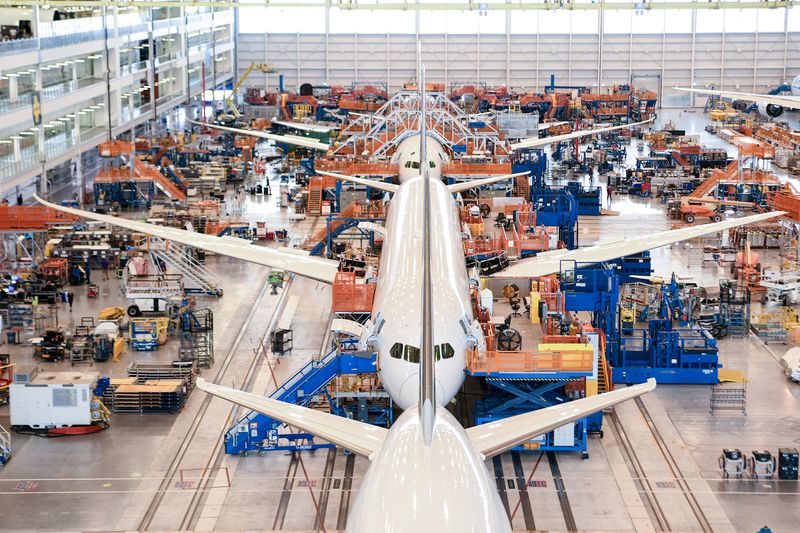Exclusive-Boeing investigates quality problem on undelivered 787s, sources say By Reuters

By Tim Hepher, David Shepardson and Allison Lampert
PARIS/WASHINGTON/MONTREAL (Reuters) -Boeing is investigating a new quality problem with its 787 Dreamliner after discovering that hundreds of fasteners have been incorrectly installed on the fuselages of some undelivered jets, two people familiar with the matter said.
The latest in a series of manufacturing snags affecting the U.S. planemaker involves incorrect “torquing” or tightening in a Boeing (NYSE:) plant of more than 900 fasteners per plane – split equally between both sides of the jet’s mid-body, they said.
There is no immediate concern about flight safety but Boeing is working to understand what caused the problem and will decide how much if any rework needs to be done once its investigation is complete, the sources said, asking not to be identified.
Boeing confirmed the checks in response to a Reuters query on Thursday and said it saw limited to no impact on deliveries.
“Our 787 team is checking fasteners in the side-of-body area of some undelivered 787 Dreamliner airplanes to ensure they meet our engineering specifications. The in-service fleet can continue to safely operate,” a spokesperson said.
“We are taking the time necessary to ensure all airplanes meet our delivery standards prior to delivery. We are working closely with our customers and the FAA (Federal Aviation Administration) and keeping them updated.”
FAA said in a statement that Boeing disclosed it may have “improperly installed fuselage fasteners on some 787” jets. “The FAA is investigating and is working closely with Boeing to determine appropriate actions and to ensure an immediate fix in the production system.”
FAA Administrator Mike Whitaker said he would hear from people on site during a previously-planned visit to a Boeing 787 plant in South Carolina on Friday.
Shares of Boeing initially fell 1.7% before paring losses to be flat.
The U.S. planemaker has been under scrutiny from regulators and customers since a January 5 incident in which a smaller 737 MAX operated by Alaska Airlines was forced to make an emergency landing after a fuselage panel blew out mid-flight.
The latest manufacturing flaw was discovered inside the company’s South Carolina plant where the 787’s lightweight carbon-composite skin is attached to skeletal supports inside the fuselage sections called longerons.
The sources said the affected fasteners had been torqued from the wrong side, using the head instead of the associated nut.
In January, Boeing issued a bulletin to suppliers that laid out practices to ensure bolts are properly torqued following inspections of 737 MAX 9s grounded in the wake of the blowout.

Tracking data confirmed that 787 deliveries are continuing, albeit at a slower-than-usual rate in the wake of a previous and unconnected production slowdown. FlightRadar24 said one 787-10 model departed for its European customer on Wednesday.
Airlines are concerned about existing delivery delays, with some buyers estimating average delays of several months.





